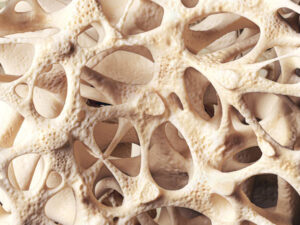
Osteoporosis is a condition that occurs in children or young adults. It is known as a condition that generally affects older individuals. However early age osteoporosis treatment The process varies depending on age, health status, and severity of symptoms.
Therefore, it is important to consult a specialist and create a personalized treatment plan. If you have concerns, you should consult a specialist to evaluate your situation. It is also important that you learn about appropriate treatment options.
What are the Treatment Methods for Osteoporosis at an Early Age?
Early osteoporosis is a condition in which bone density and durability decrease in young individuals. Treatment usually includes lifestyle changes, nutrition, medication and regular exercise.
Smoking and excessive alcohol use have negative effects on bone health. Regular weight-bearing and resistance exercises help increase bone density.
It is important to consume dairy products, green leafy vegetables and calcium-enriched foods. Vitamin D increases the absorption of calcium. Exposure to sunlight and consuming foods or supplements rich in vitamin D are beneficial.
Bisphosphonates are used to slow bone loss. Hormone replacement is used to maintain or increase bone density, especially in postmenopausal women.
Getting your bone density checked regularly is important in monitoring your bone health. Healthcare professionals can offer customized treatment plans based on personal risk factors and health status.
Treatment of osteoporosis at an early agerequires a disciplined approach. It usually involves lifestyle changes, proper nutrition, regular exercise, and medication when necessary. To maintain and improve your bone health, it is important to work closely with your doctor and follow their recommendations.
How to Treat Osteoporosis at an Early Age?

Treatment of osteoporosis at an early ageIt is a comprehensive approach that includes the patient's lifestyle, nutritional habits and medication use. Treatment is designed to maintain and increase bone density, reduce the risk of fractures, and improve overall health.
Regular exercise, especially weight-bearing and resistance exercises, increases bone density and improves bone health. Smoking and excessive alcohol use can negatively affect bone density.
Dairy products, green leafy vegetables, almonds, broccoli and foods rich in calcium should be consumed. Vitamin D supports calcium absorption and bone health. Exposure to sunlight and vitamin D supplements may be beneficial in this regard.
Bisphosphonates are medications frequently prescribed to slow bone loss. Your doctor may recommend calcium and vitamin D supplements if you cannot get enough from your diet.
Bone health should be monitored with regular bone density tests. Healthcare professionals provide regular medical follow-up to monitor your bone health and tailor treatment to individual needs.
Minimize hazards in the home to reduce the risk of falls. In some cases, hormone replacement therapy may be recommended to maintain bone density.
Dietitians and physiotherapists can offer diet and exercise programs that will support your bone health.
Healing Process After Early Age Osteoporosis Treatment
Treatment of osteoporosis at an early age The recovery process includes treatment compliance, lifestyle changes and regular follow-up. This process is designed to improve bone density, reduce the risk of fractures, and strengthen overall health.
Continuing regular exercise after treatment is vital to maintain and strengthen bone health. Maintaining a diet rich in calcium and vitamin D supports bone density.
Regular use of medications recommended by the doctor helps prevent bone loss. If any side effects occur during drug treatment, this should be reported to the doctor.
Regular bone density tests are important to monitor the effectiveness of treatment. Regular visits are required to evaluate responses to treatment and adjust the treatment plan.
Taking safety precautions at home to reduce the risk of falls is especially important for elderly patients.
Physiotherapy may be useful to increase muscle strength and balance. Nutritionists can make specific dietary recommendations to support bone health.
Diagnosing and treating osteoporosis can cause stress or anxiety in some patients. It may be useful to get psychological support if necessary.
Osteoporosis often requires long-term disease management. It is important for patients to monitor their condition regularly and maintain healthy lifestyle choices.
Treatment of osteoporosis at an early age The recovery process requires the active participation of the patient and regular medical follow-up.

